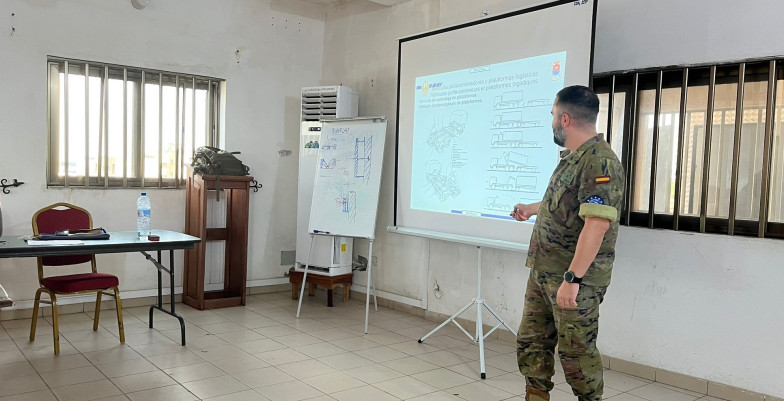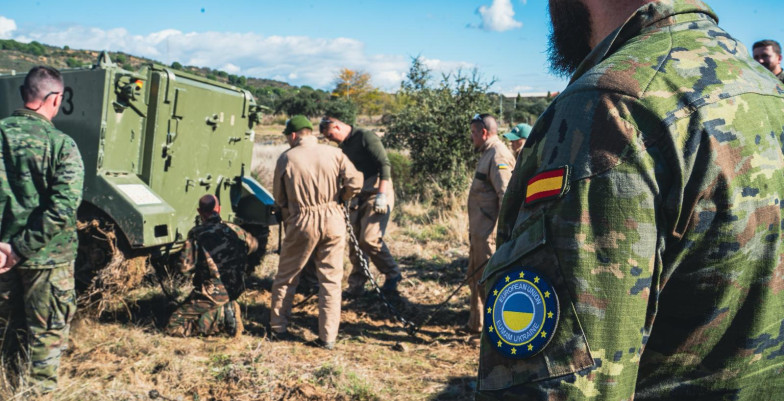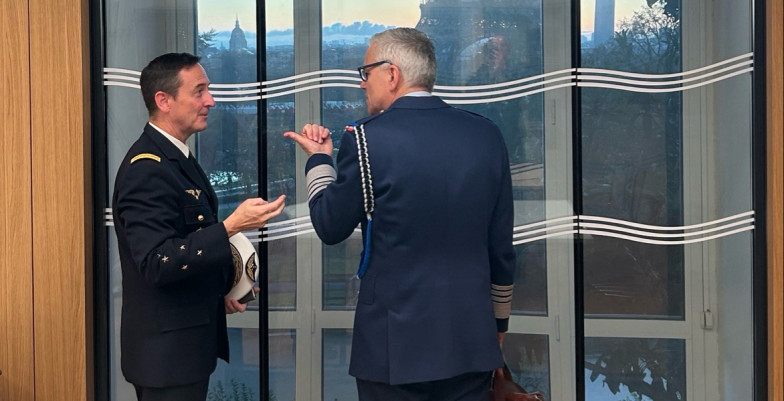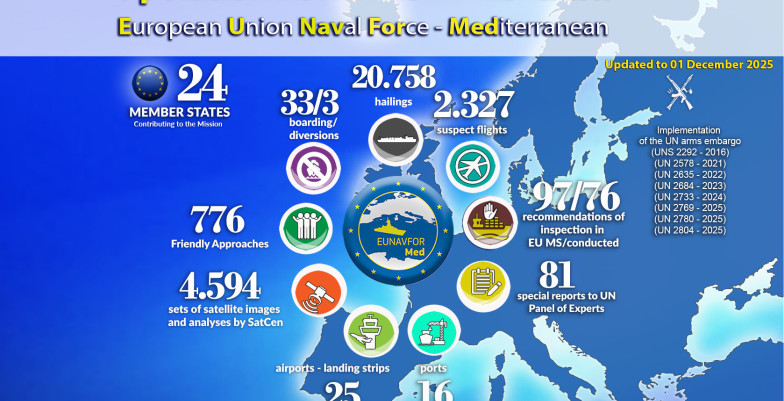EU- NATO strategic partnership
At this critical time for peace, freedom and prosperity in the Euro-Atlantic area, EU-NATO cooperation has never been more important. This page explains EU - NATO strategic partnership on security and defence.
Why EU-NATO partnership is important?
The NATO-EU strategic partnership is founded on shared values, determination to tackle common challenges and unequivocal commitment to promote and safeguard peace, freedom and prosperity in the Euro-Atlantic area. The mutually beneficial strategic partnership is an indispensable pillar for the development of the EU’s security and defence dimension.
Together, the EU and NATO can mobilise a broad range of complementary and mutually reinforcing instruments to respond to common challenges and promote peace and stability in the Euro-Atlantic area and beyond. A stronger EU and a stronger NATO are mutually reinforcing.
The EU and NATO share 23 common members - given the single set of forces and defence budgets at their disposal, enhanced EU-NATO cooperation contributes to a more efficient use of resources and makes the transatlantic bond stronger. NATO remains the cornerstone of collective defence of its members in Europe.
Following Russia’s full scale invasion of Ukraine, the 2022 Strategic Compass and EU –NATO Joint Declaration signed in January 2023, injected new political momentum for further strengthening, deepening and expanding our partnership across all areas of mutual interest, and taking it to the next level
The White Paper for European Defence – Readiness 2030, released in March 2025, highlights that EU’s efforts to address critical capability shortfalls - identified by both the EU and NATO - will help EU Member States (that are NATO members) meet NATO targets faster, more cost-effectively, and with better interoperability from the start. This will strengthen Europe’s contribution to NATO’s deterrence and collective defence. Close EU - NATO coordination is essential to rebuilding European defence.
Cooperation between the EU and NATO takes place on the basis of the key guiding principles: transparency and mutual openness, inclusiveness, reciprocity and decision-making autonomy of both organisations, without prejudice to the specific character of the security and defence policy of any Member State.
How do we work together?
Strengthening political dialogue
Since Russia’s war of aggression against Ukraine, the EU and NATO have stepped up exchanges on policy developments and cooperate at the highest political levels. For example, High Representative Kaja Kallas participates in the NATO-Ukraine Council Ministerial meetings, and started exchanges with NATO Foreign Ministers on European defence.
Stepping up EU-NATO coordination and cooperation
The EU and NATO hold regular dialogues and consultations on a variety of topics ranging from military mobility, defence industry, support to Ukraine, to cyber and hybrid threats, emerging disruptive technologies, space, maritime or counter-terrorism issues.
For example, as a result EU and NATO:
-
Stepped up our cooperation on crisis management, critical infrastructure protection, health preparedness and related strategic communications.
-
Participate in each other’s cyber security exercises and coordinate statements condemning malicious cyber activities.
-
Put efforts to ensure coherence between EU and NATO capability development planning instruments and processes, including to ensure interoperability and complementarity of efforts and avoid unnecessary duplication.
-
Assist other partner countries in building their capacities and strengthening their resilience as well – especially in the Western Balkans and Eastern and Southern neighbourhood.
Supporting Ukraine
EU and NATO work closely together to support Ukraine and ensure complementarity of efforts through constant bilateral exchanges between respective experts on military support, population movements, humanitarian assistance, CBRN, hybrid and cyber threats, disinformation, energy, and critical infrastructure.
For example, the EU Military Assistance Mission in support of Ukraine (EUMAM) cooperates closely with NATO Security Assistance and Training for Ukraine (NSATU). The EU Delegation, EU Defence Innovation Office, both in Kyiv, as well as the EU Advisory Mission for Civilian Security Sector Reform to Ukraine (EUAM) also coordinate closely with NATO on the ground. EU and NATO also interact on the support for Ukraine as part of the multinational Ukraine Defence Contact Group (UDCG).
Tracking progress
The progress of the EU-NATO cooperation is reflected in annual joint progress reports, highlighting the key achievements and concrete deliverables of the strategic partnership. In addition, a structured staff-to-staff mechanism, under the lead of the EU-NATO Steering Group, monitors the implementation






